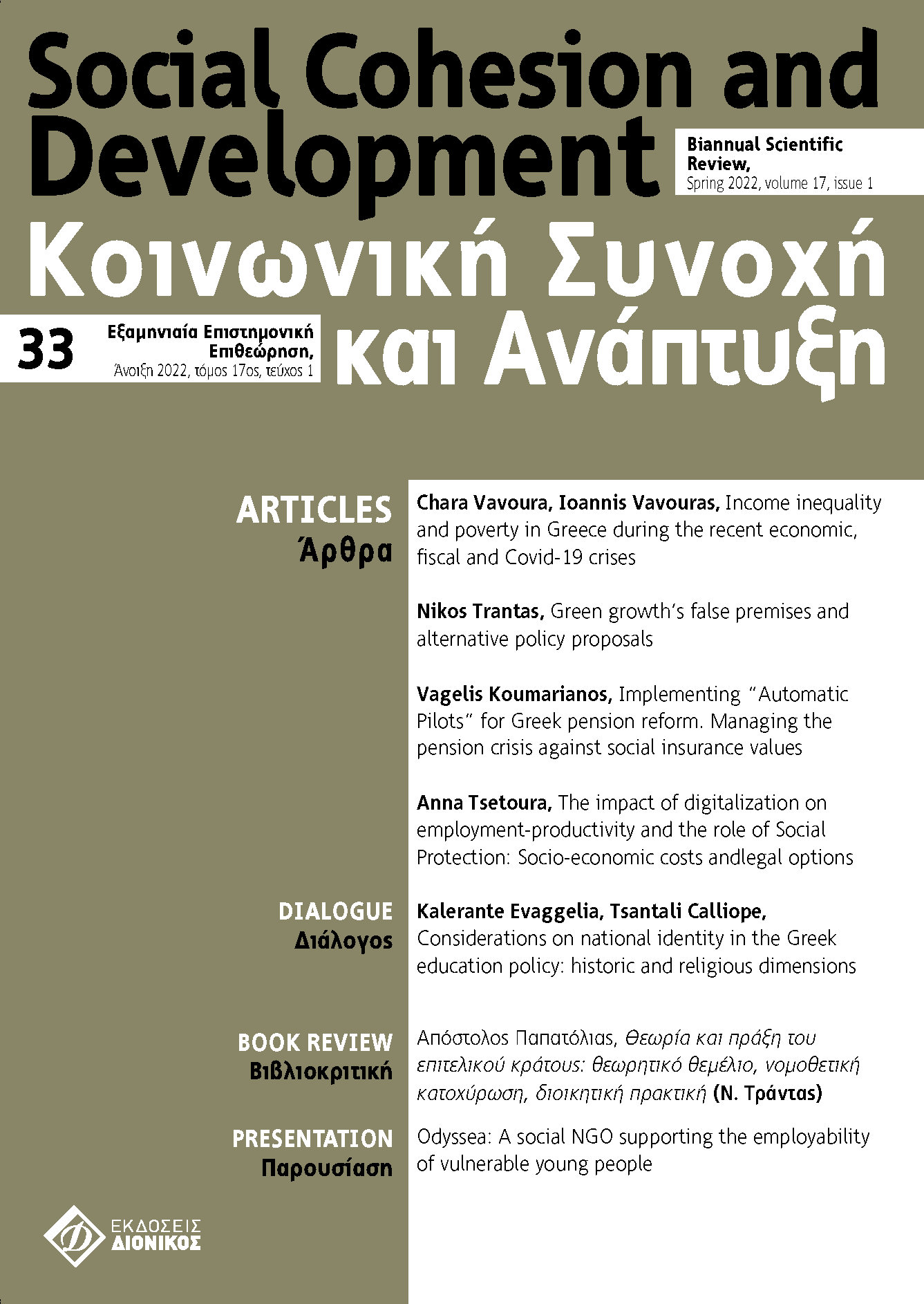Considerations on national identity in the Greek education policy: historic and religious dimensions

Abstract
This paper is concerned with the instruction
of History and Religious Education in the
Greek education system. Concentration is
placed on the complex national and religious
narrative about the school dynamics related
to the values and religious-national patterns
transfer. The resistant traditional policy is portrayed
and, in terms of semantics, it focuses
on nation-centralization through political
and spiritual symbols. They confine, explicitly
or implicitly, the approach towards the intercultural
concept which forms the prerequisite
of the transformation that makes the concept
of “national” meaningful through the
promotion of completeness and unification
principles as factors towards the formation of
citizens capable of being incorporated in the
expanded political and cultural environments
Article Details
- How to Cite
-
Kalerante, E., & Tsantali, C. (2022). Considerations on national identity in the Greek education policy: historic and religious dimensions. Social Cohesion and Development, 17(1), 67–80. https://doi.org/10.12681/scad.32237
- Section
- Dialogue

This work is licensed under a Creative Commons Attribution-NonCommercial-ShareAlike 4.0 International License.
Authors who publish with this journal agree to the following terms:
- Authors retain copyright and grant the journal right of first publication with the work simultaneously licensed under a Creative Commons Attribution Non-Commercial License that allows others to share the work with an acknowledgement of the work's authorship and initial publication in this journal.
- Authors are able to enter into separate, additional contractual arrangements for the non-exclusive distribution of the journal's published version of the work (e.g. post it to an institutional repository or publish it in a book), with an acknowledgement of its initial publication in this journal.
- Authors are permitted and encouraged to post their work online (preferably in institutional repositories or on their website) prior to and during the submission process, as it can lead to productive exchanges, as well as earlier and greater citation of published work (See The Effect of Open Access).


